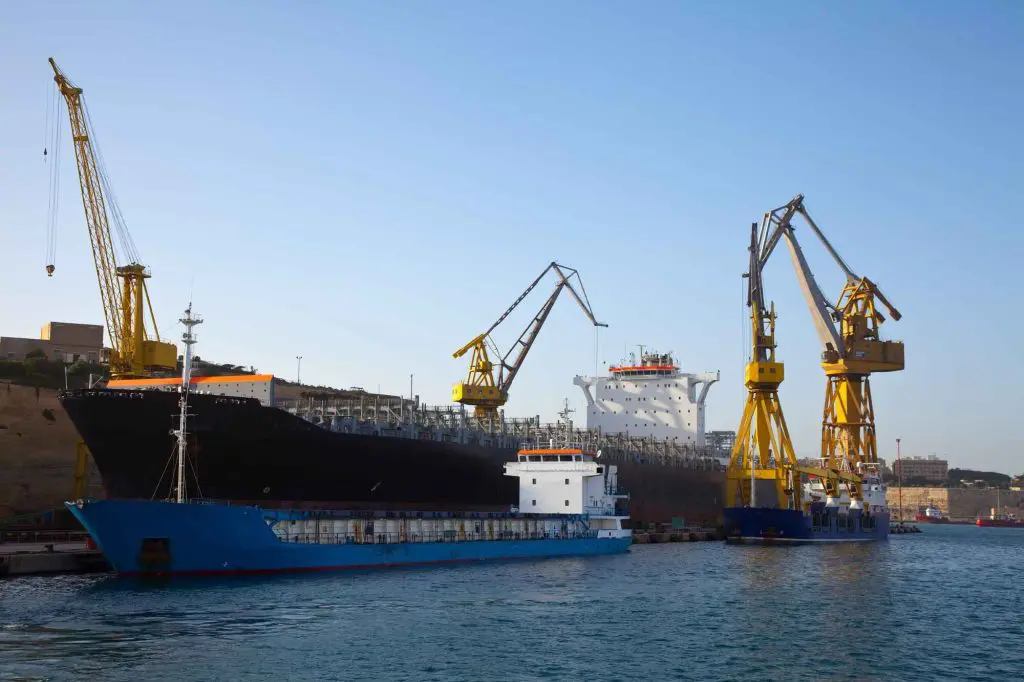In the world of logistics and supply chain management, businesses in Melbourne, Australia, often find themselves at a crossroads when it comes to deciding between two critical service providers: freight forwarders and shipping carriers. Both play vital roles in ensuring goods reach their destination, but they operate in different ways and cater to distinct needs. In this comprehensive guide, we will explore the differences between freight forwarders and shipping carriers, helping Melbourne businesses make informed decisions about which is the right choice for their specific requirements.
Understanding Freight Forwarder in Melbourne
What is a Freight Forwarder?
A freight forwarder is a company or individual that acts as an intermediary between your business and various transportation services. They are logistics experts who facilitate the shipment of goods from the manufacturer to the final destination. Freight forwarders handle a wide range of logistics services, including booking cargo space, arranging transportation, and ensuring compliance with customs regulations.
Advantages of Using a Freight Forwarder
Expertise and Experience: Freight forwarders have specialized knowledge of international shipping regulations, documentation, and logistics. This expertise can be invaluable, especially for businesses new to exporting or importing.
One-Stop Shop: Freight forwarders handle all aspects of the shipping process, including booking cargo space, arranging pickup and delivery, and managing paperwork. This simplifies the logistics process for your business.
Cost-Effective: By leveraging their industry connections, freight forwarders can often secure better rates for shipping than you might on your own.
Customized Solutions: They can tailor their services to meet your specific needs, whether you’re shipping perishable goods, hazardous materials, or oversized cargo.
Risk Management: Freight forwarders can help you mitigate risks and navigate the complexities of international shipping, including customs compliance and insurance coverage.
When Should You Choose a Freight Forwarder?
You should consider partnering with a freight forwarder in Melbourne when:
– Your business is involved in international trade.
– You lack expertise in international shipping regulations and logistics.
– You need a streamlined solution to manage the entire shipping process.
– You want to leverage industry connections for competitive shipping rates.
– You need assistance with customs compliance and risk management.
Deciphering Shipping Carriers in Melbourne
What is a Shipping Carrier?
Shipping carriers, on the other hand, are the companies responsible for physically transporting your goods. These entities own or operate the vehicles, vessels, or aircraft used to move cargo. Shipping carriers include airlines, ocean carriers, trucking companies, and courier services like FedEx and DHL.
Advantages of Using a Shipping Carriers
Direct Service: Shipping carriers provide direct transportation services from one point to another. They specialize in the physical movement of goods.
Speed: Depending on the mode of transportation, shipping carriers can offer expedited delivery options for time-sensitive shipments.
Predictable Costs: Shipping carriers often have straightforward pricing structures based on factors like distance, weight, and shipping speed.
Familiarity: If your business frequently uses a specific carrier, you become accustomed to their services and procedures.
Tracking and Visibility: Shipping carriers typically offer tracking services, allowing you to monitor the progress of your shipments.
When Should You Choose a Shipping Carrier?
You should opt for a shipping carrier when:
Your business requires direct transportation services.
– You have specific shipping preferences or a long-standing relationship with a particular carrier.
– You need fast or expedited shipping options.
– Your logistics process is well-established, and you only require the physical movement of goods.
Key Differences
1. Scope of Services
– Freight Forwarders: They handle a comprehensive range of logistics services, including booking cargo space, transportation, customs compliance, and documentation.
– Shipping Carriers: Shipping carriers focus primarily on the physical transportation of goods.
2. Expertise
– Freight Forwarders: They are logistics experts with extensive knowledge of international shipping regulations and customs procedures.
– Shipping Carriers: Their expertise lies in efficiently moving cargo from one location to another.
3. Network and Partnerships
– Freight Forwarders: They have extensive industry connections and partnerships with various transportation services, enabling them to offer integrated solutions.
– Shipping Carriers: Shipping carriers have their own fleets and infrastructure for transporting goods.
4. Control and Responsibility
– Freight Forwarders: They take responsibility for the entire logistics process, from start to finish.
– Shipping Carriers: Their responsibility is limited to the physical transportation of goods.
5. Paperwork and Documentation
– Freight Forwarders: They handle all the necessary documentation for international shipping, such as bills of lading, customs declarations, and export/import permits.
– Shipping Carriers: They require you to handle most of the paperwork associated with your shipments.
Conclusion: Making the Right Choice for Your Melbourne Business
The choice between a freight forwarder and a shipping carrier depends on your business’s unique needs, expertise, and the scope of services required. Consider the following factors when making your decision:
Expertise: Do you have the knowledge and experience to handle international shipping, customs compliance, and documentation on your own? If not, a freight forwarder can provide the necessary expertise.
Scope of Services: Are you looking for a one-stop solution that handles the entire logistics process, or do you only need direct transportation services?
Industry Connections: Are you seeking competitive shipping rates and access to a network of transportation providers? Freight forwarders typically have extensive industry connections.
Time Sensitivity: Do you have time-sensitive shipments that require fast delivery options? Shipping carriers can offer expedited services.
Control and Responsibility: Consider how much control and responsibility you want in managing your logistics. Freight forwarders assume greater responsibility for the entire process.
Ultimately, the right choice for your Melbourne business comes down to a careful evaluation of your specific requirements and objectives. Whether you opt for a freight forwarder, a shipping carrier, or a combination of both, your decision should align with your business’s growth and success in the global market.
By making an informed choice, you can navigate the complexities of international shipping with confidence, ensuring your products reach their destination efficiently and on time.
If you’d like to discuss your logistics needs or have more questions about freight forwarders or shipping carriers, feel free to contact us. We’re here to help your Melbourne business thrive in the global marketplace.

